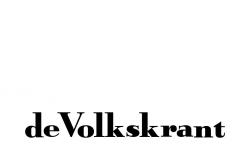Solar panels on Dutch roofs, in 2024 it is the rule rather than the exception. In February of this year, the Netherlands even managed to trump Australia as world champion of solar panels per inhabitant. But a turnaround now appears to have begun, partly due to the loss of various financial benefits. If you do not yet have solar panels on your roof, is it still attractive to invest in them? And what about the payback period?
World champion of solar panels still maintains the netting scheme
The developments surrounding solar panels are following each other at breakneck speed, as became apparent in February 2024. A few days after the Netherlands crowned itself world champion, the news arrives that the Senate is still voting against the phasing out of the netting scheme. Discussions about this favorable arrangement for solar panel owners – the settlement of their returned solar energy on their energy bill – have been going on for years. But the netting arrangement will still remain in place, even though the House of Representatives previously approved a gradual phase-out after 2025.
This political turn seems to be an impetus for the solar panel industry. Since the netting scheme was introduced in 2004, purchasing solar panels has become a real possibility for more and more consumers. In addition, solar panels have become increasingly cheaper over the years. The payback period has fallen spectacularly, from almost 35 years in 2004 to 5 to 7 years in recent years, according to figures from Milieu Centraal. During the 2022 global energy crisis, the payback period has been even shorter.
Many financial benefits for solar panel owners disappear
But the maintenance of the netting scheme is now offset by several factors that actually delay the payback period. Firstly, there are more and more energy suppliers, including energy giant Eneco, who charge extra costs for supplying self-generated energy. The compensation that households receive when they supply solar energy has also become lower at many energy companies. Finally, energy companies are now reluctant to offer multi-year contracts and welcome and loyalty bonuses for households with solar panels.
Also read: No multi-year contracts, lower feed-in tariffs and extra costs for solar panel owners: why is this?
Smaller difference between households with or without solar panels
What these types of measures mean for the payback period of solar panels The Telegraph and comparison site Gaslicht.com in March 2024, based on research into hundreds of thousands of consumers. Whether or not to purchase solar panels, the financial benefit of the 1st option has become increasingly smaller. “Households that generate three quarters of their own electricity consumption are on average only €30 cheaper per year than households that do not have solar panels,” calculates Sanne Bins on behalf of Gaslicht.com, in conversation with The Telegraph. The intended payback period is 5 to 7 years. “We are currently seeing examples where the payback period is more than double what the government was aiming for,” adds a spokesperson for Gaslicht.com, in response to questions from MAX Today.
The comparison site takes an average household with solar panels as an example, with an annual consumption of 1,200 cubic meters of gas and 3,200 kilowatt hours of electricity. This household was initially able to save 485 euros on a bill of 2,000 euros, thanks to the netting scheme. But in March 2024 that will only be 248 euros, on a bill of 2,045 euros. This has to do with the extra costs that solar panel owners now have to deal with, despite the maintenance of the netting arrangement. “Consumers with high self-consumption and high feed-in are slightly better off, but still end up 3 to 4 years above the 7-year period,” according to Gaslicht.com.
What factors determine your payback period?
So how attractive is it to get solar panels yourself if you haven’t already done so? That depends on various factors. Consider the available space on your home, the position of your roof (flat or sloping), the wind direction of your roof, the amount of shade that falls on it, the size of your household and the amount of your current energy bill. These factors determine how high your investment should be, how many panels you can install at home and how much energy you can generate with them. And how long your payback period will be. In addition, pay attention to the electricity rate, taxes, any return costs from the supplier and of course the costs of the solar panels, Gaslicht.com emphasizes. You can make an estimate for yourself using comparison sites such as Zonvinder. And make sure you can obtain reliable advice.
Also read: Solar panels in winter: what do they yield? And how can you make the most of them?
What is the payback period, with and without return costs?
Milieu Centraal has calculated the payback period. Do you have 6, 10 or 18 solar panels, facing south at an angle of 30 to 45 degrees? Through netting you can recoup the investment in just over 5 years, if you do not include the return costs and other costs. If you do, you will of course need more years to recoup the investment. Suppose your energy company charges 250 euros annually in feed-in costs (which in practice can also be higher)? The payback period for 10 panels can then increase to at least 8 years, Milieu Centraal calculates. The most affordable time to purchase solar panels is now behind us. But: “Apart from that, purchasing solar panels still remains a good investment. This is especially interesting for consumers with high consumption and a larger number of solar panels,” says Gaslicht.com.
Furthermore, keep in mind that solar panels usually last more than 25 years, but become less efficient over time. Even at extremely high temperatures, in the middle of the day in summer, solar panels yield relatively less. Finally, the inverter of the solar panels will need to be replaced sooner, which also entails additional costs. Speaking of inverters, energy company Zonneplan now has the option to remotely switch off the inverters of solar panel owners during peak times. Customers who consent to this can receive financial compensation as compensation for their lost income.
(Source: Archive, Nieuwsuur, De Telegraaf, Gaslicht.com, Milieu Centraal, Independer, Zonvinder.nl, Business Insider, Dagblad van het Noorden. Photo: Shutterstock)







